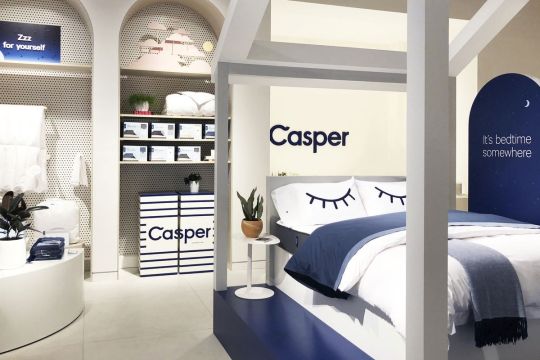
Direct-to-consumer (DTC) brands such as Dollar Shave Club, Casper
and Glossier have taken retail by
storm in recent years — in fact, $3
billion in venture funding has gone to DTC brands since 2012, according to
CB Insights. More than $1 billion of
that total was invested in 2018, indicating plenty of investor confidence that
DTC brands can grow at a rapid pace, despite fervent competition.
No doubt noticing that these brands generate both sales and
a direct relationship with the consumer, major retailers — including Amazon, Target, Walmart and Kroger — have ramped up their
private label offerings.
The RTP editorial
team shares their thoughts on the rise of DTC brands and gives advice to
retailers on how they can compete effectively in this changing landscape.
Adam Blair, Editor: One
of the biggest reasons brands are ramping up their DTC operations (beyond the
obvious one of selling more stuff) is the tremendous opportunity to gather
first-party data about customers — not just who they are but what kinds of
marketing they respond to, as well as what they like (and don’t like) about the
brand’s products. So if it’s as much an information battle as a sales
competition, retailers need to fight
data with data. James Thomson, an ex-Amazon executive now with
BuyBox Partners, gave advice to brands in an article that focused on Amazon’s private label
strengths: “These brands need to gather more customer data, especially around
price sensitivity (how much more likely to buy at various price points) and
customer preferences (what current product gaps are pervasive in negative
customer feedback).” Thomson added that brands also need to be able to
launch sub-brands much faster — in six
to nine months versus the usual two
to three years that CPG firms have traditionally taken.
Alicia Esposito, Senior
Content Strategist: My husband and I do a fair amount of business with DTC
brands. He’s obsessed with Harry’s razors and I’m a huge fan of Glossier’s
skincare and cosmetics products. Up front, product quality is critical. These
companies invest heavily in not only developing a targeted line of products
that align with their target customers; they also invest in creating quality products that add something new
to the market. Whether through iteration or innovation, these brands prioritize
their customers and up-leveling their respective categories. Conversely, I’m
seeing many retailers’ private label brands focus on price differentiation
alone, which isn’t sustainable for the long term. Finally, and perhaps most
importantly, these brands go all-in on customer experience and marketing.
Dollar Shave Club creates stellar content for its online properties — and their
commercials typically garner a lot of word of mouth. Casper, meanwhile, really
set itself apart with its pop-ups, in-store experiences. Not to mention,
Casper’s social media strategy is top-notch; they’re cheeky, timely and
interesting, and they find ways to add value to consumers’ lives by helping
them get better sleep. All in all, DTC brands are investing in all the right
things when it comes to achieving customer relevance; it’s time that retailers
hop on the bandwagon, or they might get left in the dust.
Glenn Taylor, Senior
Editor: Any time I hear DTC or private label discussed in any format, it
always seems to come with the talk of margins soon after. Dollar General recently
launched its own DG Fresh program, designed
to bring distribution of perishable goods in-house and, in turn, offer a wider
selection of private brands and reduce the costs of working with other distributors.
In the end, higher margins matter to everyone, so it’s not much of a shock that
in today’s hyper-competitive environment — where any new brand can set up shop
online and gain visibility — that more retailers feel they might as well do the
same. An eMarketer
article made a compelling argument that one of the biggest contributors to
the downfall of Payless was the
company’s inability to differentiate its products and build a brand customers
cared about until it was too late. The “Palessi” stunt both generated media
attention and posed an alternative to the retailer’s usual business strategy by
“offering” stylish shoes at affordable prices, in the way that companies like Allbirds or M.Gemi would. Private label isn’t going to solve every problem for
struggling retailers, but the basics of offering a product that truly matters
to the consumer are a universal necessity among retailers.






